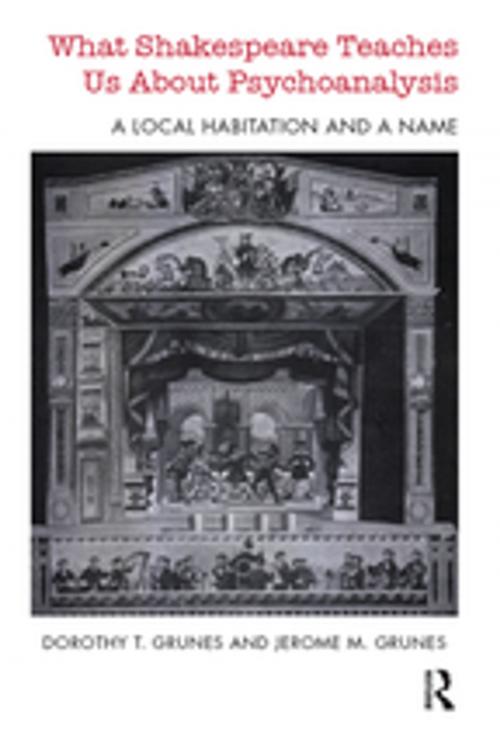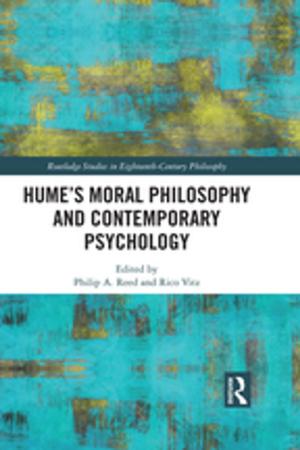What Shakespeare Teaches Us About Psychoanalysis
A Local Habitation and a Name
Nonfiction, Health & Well Being, Psychology, Psychoanalysis, Mental Health| Author: | Dorothy T. Grunes, Jerome M Grunes | ISBN: | 9780429923883 |
| Publisher: | Taylor and Francis | Publication: | May 15, 2018 |
| Imprint: | Routledge | Language: | English |
| Author: | Dorothy T. Grunes, Jerome M Grunes |
| ISBN: | 9780429923883 |
| Publisher: | Taylor and Francis |
| Publication: | May 15, 2018 |
| Imprint: | Routledge |
| Language: | English |
Using Shakespeare's work to expand our understanding of what it is to be human, this book of applied psychoanalysis furthers the study of Shakespeare, literary theory, dramatic arts, and psychoanalytic theory. It is also accessible to readers, theatre-goers and those who have an interest in the human condition. With intellectual rigour, and close textual analysis, it values the insights of many creative writers such as T. S. Eliot, James Joyce, W. H. Auden, Samuel Taylor Coleridge, as well as Sigmund Freud, Heinz Kohut and D.W. Winnicott. For the clinician, this book introduces new theories in psychoanalysis based upon the text and clinical experience. Psychoanalysts looking at literature are at a disadvantage, as the value system belongs solely to the realm of literary theory proper. Literary theory, in turn, often finds what the scholar seeks. It is not surprising that this potentially enriching combination of literary theory and psychoanalysis has had difficulty sustaining its relevance and tends towards reductionism.
Using Shakespeare's work to expand our understanding of what it is to be human, this book of applied psychoanalysis furthers the study of Shakespeare, literary theory, dramatic arts, and psychoanalytic theory. It is also accessible to readers, theatre-goers and those who have an interest in the human condition. With intellectual rigour, and close textual analysis, it values the insights of many creative writers such as T. S. Eliot, James Joyce, W. H. Auden, Samuel Taylor Coleridge, as well as Sigmund Freud, Heinz Kohut and D.W. Winnicott. For the clinician, this book introduces new theories in psychoanalysis based upon the text and clinical experience. Psychoanalysts looking at literature are at a disadvantage, as the value system belongs solely to the realm of literary theory proper. Literary theory, in turn, often finds what the scholar seeks. It is not surprising that this potentially enriching combination of literary theory and psychoanalysis has had difficulty sustaining its relevance and tends towards reductionism.















